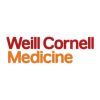Heart Disease Awareness Campaigns: Raising Awareness for Better Heart Health
Published on Mar 16, 2025
Understanding the Power of Heart Disease Awareness Campaigns
The Importance of Heart Disease Awareness
Heart disease continues to be a leading cause of death worldwide, making heart disease awareness campaigns more critical than ever. These campaigns play a vital role in educating the public about the risks of heart disease, promoting prevention strategies, and encouraging healthier lifestyles. By increasing awareness about the signs, symptoms, and risk factors associated with heart disease, these campaigns empower individuals to take control of their heart health.
Raising awareness is crucial, not only to inform people about heart disease but also to reduce the stigma that sometimes surrounds this health issue. Heart disease doesn't discriminate, and understanding its prevention and treatment options can make a significant difference in saving lives.
The Goals of Heart Disease Awareness Campaigns
Heart disease awareness campaigns have several key objectives that aim to reduce the incidence of heart disease and improve overall heart health:
1. Promote Healthy Lifestyle Choices
One of the main goals of heart disease awareness campaigns is to encourage individuals to adopt healthier habits, such as eating a balanced diet, exercising regularly, and avoiding smoking. By making these lifestyle changes, people can reduce their risk of developing heart disease.
2. Increase Early Detection
Early detection is crucial in the fight against heart disease. Campaigns aim to educate individuals about the importance of regular check-ups and screenings to detect heart disease in its early stages. This can lead to more effective treatments and better health outcomes.
3. Reduce Risk Factors
High blood pressure, high cholesterol, and obesity are among the top risk factors for heart disease. Awareness campaigns often focus on educating the public about these risks and provide actionable steps to manage or reduce them. These steps may include medications, lifestyle changes, or even surgery in some cases.
Real-Life Impact: How These Campaigns Save Lives
The impact of heart disease awareness campaigns is evident in countless real-life stories. Take, for example, the story of Sarah, a woman in her 40s who attended a heart health seminar as part of a local awareness campaign. During the seminar, she learned about the importance of knowing her family history and monitoring her cholesterol levels. Sarah took the information to heart, scheduling a visit to her doctor for a check-up.
Thanks to early intervention, Sarah was diagnosed with high cholesterol and was able to start treatment before any serious heart issues developed. Had she not attended the awareness campaign, she might not have sought out the check-up that saved her life. Her story is a testament to the power of these campaigns in changing lives and preventing heart disease before it becomes a major health crisis.
Effective Strategies for Raising Awareness
Heart disease awareness campaigns can be extremely effective when the right strategies are employed. Some of the most successful strategies include:
1. Social Media Outreach
With the widespread use of social media, campaigns can quickly reach a large audience. Platforms like Facebook, Instagram, and Twitter allow heart health organizations to share tips, statistics, and personal stories that resonate with the public. Social media campaigns can create viral content that sparks conversations and encourages people to take action.
2. Collaborations with Healthcare Providers
Partnering with doctors, hospitals, and clinics allows heart disease campaigns to have a direct impact on patients. Healthcare providers can distribute educational materials, host screenings, and offer resources for those at risk of heart disease.
3. Community Events and Fundraisers
Hosting community events, such as walks, runs, or health fairs, can also raise awareness while engaging the public. These events bring people together, provide a sense of community, and offer a fun way to support heart disease prevention.
4. Targeting Specific Demographics
Tailoring campaigns to specific age groups, ethnicities, or communities can have a more significant impact. For example, targeting high-risk populations, such as older adults or individuals with a family history of heart disease, can help deliver messages that resonate and lead to preventive actions.
How You Can Contribute to Heart Disease Awareness
While awareness campaigns are an essential tool in the fight against heart disease, everyone has a role to play in raising awareness. Here are a few ways you can contribute:
1. Share Information
Sharing articles, posts, and tips about heart disease prevention on social media can help spread the message to your friends and family. The more people who know about heart disease, the more lives can be saved.
2. Participate in Local Campaigns
Get involved in local heart disease awareness campaigns by attending events, donating, or volunteering. These actions help fund research and ensure that more people have access to vital information and screenings.
3. Educate Yourself and Others
Take the time to learn about the risk factors of heart disease and share that knowledge with those around you. The more people understand about heart health, the more empowered they are to take action.
By supporting heart disease awareness campaigns and educating those around you, we can collectively reduce the impact of heart disease and save lives. Let's work together to spread the message and create healthier, heart-aware communities.




















